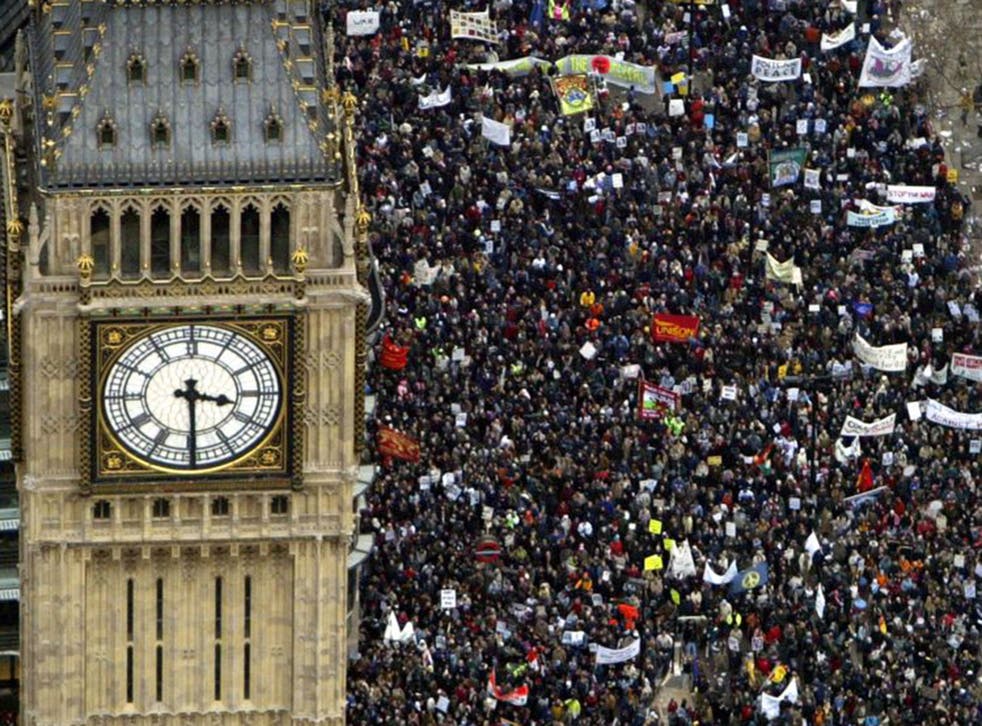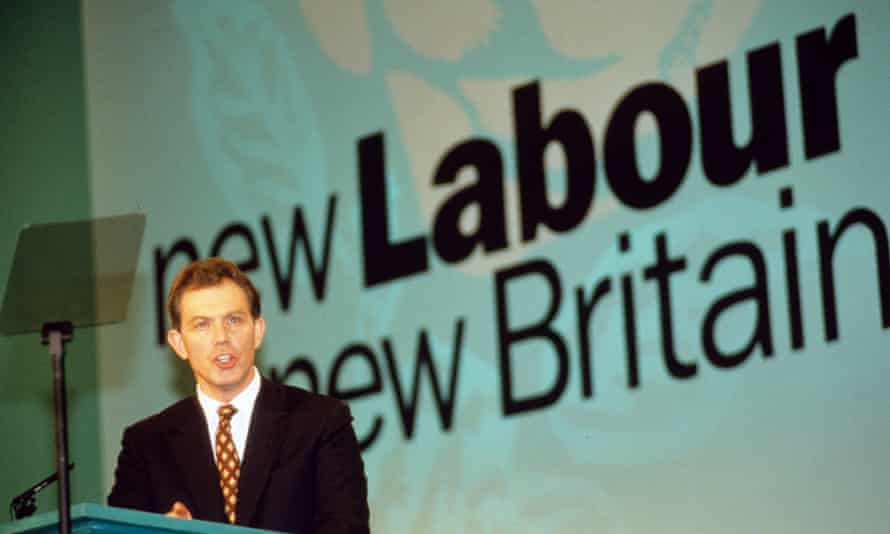Legacy – what does that word mean to you? It’s a word that inspires hope for some and utter contempt for others. But I’d wager that of any person in Britain, one man has thought about this word more than any other.
The man who had arisen at a time of popular unity and ‘Cool Britannia’, taking the nation into a new millennium, became one of the most despised men anywhere in the world.
Tony Blair is unpopular. That doesn’t seem to be a controversial statement. The announcement from the Palace on 31st December that he is to receive a knighthood was met with rage and anger at the decision made by the Queen. Over a million signed a petition to revoke the knighthood, of all coordinates on the political compass. YouGov polling is evidence that only 20% like the man and almost 50% of Brits actively dislike him. How did we get here?
There’s about four points of discussion when we consider the legacy of Anthony Charles Lynton Blair – international, domestic, political, and cultural. Let’s start with the first.
Most people who dislike Tony Blair hold him in contempt primarily for Iraq. Blair’s decision to join the American-led war was one of the most unpopular choices a British Prime Minister has made since the Suez Crisis. The tragedy of the war was not so much that nobody saw the breakdown of the operation coming, it’s that everyone could and nobody at the top listened. Like the captain of the Titanic knowing of an iceberg but ignoring warnings, Blair invaded Iraq without a withdrawal plan. A million protested on the streets of London on 15th February 2003, at a time when war preparations were being announced. It’s disgraceful to think that the Prime Minister who received 43% of popular support in 1997 by 2003 was going against the wishes of over 50% of the population.
It’d be bad enough knowing that Blair went into Iraq ignoring the public, but we now know that Blair went into Iraq actively telling falsehoods to the British people. We were told that we were 45 minutes away from annihilation at the hands of Saddam Hussein, which was a lie. We were told that Saddam hadn’t rid himself of a WMD, which was a lie. We were told that there was a direct link between the Iraqi government and terrorism, which was a lie. The information given to the US and UK governments by ‘Curveball’ on Saddam’s WMD was a lie.
Whether Blair knew that he was lying, or whether he believed that the misinformation was the truth, I’ll leave you to decide. It’s not my place to speculate on the reasons for the war, whether that be oil, threat, mineral extraction or simply to evict a tyrant.
What’s clear, though, is that Blair’s misinformation cost unnecessary lives. The ORB survey of lives lost in Iraq estimates that 1.2 million died in the war, the Lancet says 600,000, but most polling agencies put the figure at about a million, many of whom civilians.

It is my firm belief that Blair must now face up to what he has done, and apologise, alongside being held accountable for his actions.
But how did this influence the world we now have to live in? Most obviously, the intervention and subsequent occupation destabilised the region and gave way to terrorism, which haunts us repeatedly to this day. On a more theoretical note, Blair’s consistent interventions abroad, whether in Iraq, Afghanistan, Sierra Leone, or Kosovo, paved the way for a generation for every foreign policy question to have the same answer in the minds of our bourgeois political class, that war is the only option. The 2021 US withdrawal from Afghanistan, which saw a resurgent Taliban taking hold of the country, was less the fault of Trump or Biden, but more on the people who led the US and UK forces into an endless war with no withdrawal strategy, namely Blair and Bush.
It can be harder to confront Blair on domestic issues, but it’s fundamentally necessary if we are to have a reasonable discussion on New Labour’s record in government.
The most obvious examples of Blair’s domestic failures were the consistent attacks on civil liberties from 2003 onwards. There are far too many to mention, but the obvious examples are the attempt to introduce ID cards and 40-day detention. What started as a socially libertarian political project soon evolved into spying on citizens, detaining them without trial and tracking people using CCTV wherever they went. ID cards were an expensive and disrespectful concept, which betrayed the legitimate fear that many had in the wake of attacks such as 9/11 and 7/7, and proposed to use biometric technology to hold the information of ordinary citizens.
Furthermore, another of Blair’s failures comes in the form of the Frankenstein-like part-privatisation of public assets, such as housing, education and the NHS, the stalwart of which being the Private Finance Initiative (PFI). PFI proposed to contract private companies to fund public services. Whilst PFI was a John Major initiative, it was barely used until Blair’s arrival. It symbolised the ‘Third Way’ that sought a compromise between capital and labour, a half-way position between government power and private power. PFI, especially in the Health Service, started as a hopeful scheme to improve vital public assets, yet regressed into a public debt crisis, as underfunding of the NHS itself, coupled with large PFI contracts, resulted in a lack of expenditure on actual health, which led to seven NHS trusts needing a bailout in 2012. The absurdly high rates of interests on such buildings undermined actual healthcare, alongside pay for NHS workers. Of course, for a time, PFI and foundation hospitals did do some good things (hence the image of the Blair years as being the NHS’ ‘heyday’), but the years of Tory underfunding and ballooning costs have left the NHS penniless and struggling during the COVID-19 crisis.
Another way in which Blair screwed over us Brits was around education with the introduction of tuition fees. Whereas in years gone by the state could provide high-quality university education to our young people, we essentially privatised the university sector, forcing universities to take neoliberal restructurings and placing hundreds of thousands of students in debt.

I obviously do not have time to cover all of Blair’s domestic policies, of which there were undoubtedly some net positives. The national minimum wage, for example, was a successful policy that benefitted the professional and personal lives of millions – however, his attacks on the trade unions massively detracted from this. Furthermore, the Sure Start programme helped many young families and holds a special place in my heart. But, if we weigh all of these positives against the negatives, we obviously see that the overall impact of Blairism domestically was, and still is, bad for the UK.
The Blair project had an enormous effect on parliamentary politics. Under the post-war settlement, and even under Thatcher, we knew where we stood politically. There were two parties and they had two different views of the world. Blair’s Labour leadership abolished the concept of political principles, ushering in neoliberalism and focus groups, and narrowing the ideological gap between Labour and the Tories.
The most obvious example of Blairite decay of politics was the introduction of ‘spin’. Put simply, spin is a media technique of giving the public a one-sided view of events and changing the meaning of an event to suit one’s own agenda. Somebody who performs spin is known as a spin doctor. New Labour ministers were given a ‘line’ to abide by, and not to stray from this in interviews. The press pack were given daily briefings by chief spin doctor Alastair Campbell, who ruthlessly kept control of Blair’s media operation, often with results that damaged careers (and lives in the case of Dr David Kelly). Campbell’s spin operation allowed for the Iraq War to be sold to millions, although of course the majority of Brits never bought it.
Blair aimed to unite the political class in an obvious way. He wanted to openly merge the Liberal Democrats with the Labour Party, in a way that would return to the days of the Lib-Lab pact of the 1890s. The whole point of the Labour Party was to provide a reformist socialist left opposition to the Liberals, whereas before trade unionists had begrudgingly voted for the Liberal candidate. Luckily, Paddy Ashdown never really entertained the concept, and after Charles Kennedy opposed the Iraq War, the concept was dead in the water. That concept is back up and running now due to the ‘Progressive Alliance’ brief being floated by those desperate to ‘unite progressive forces’ in the Greens, Labour, and Lib Dems.
Ultimately, the worst political betrayal of Blairism was that it sold the Thatcher project to the working class and the Labour Party. “I always saw it as my job to build on some of the things she did”, Blair said upon the death of Thatcher in 2013. The myth that any 1997 Labour government would provide an alternative to austerity capitalism was badly mistaken. Attacks on trade unions, mass surveillance and a deregulated market economy led to the process of giving Thatcherite neoliberalism a ‘human face’ giving up on the ‘human’ bit and going further than the Iron Lady could ever have dreamt of.
Whilst the seeds of this rotting tree were sown under Thatcher, who led the first neoliberal assault against the British people, the tree grew and bloomed under Blair. With Starmer’s Labour Party reigniting the Blairite spirit of ‘New Labour’, we can only hope that the legacy of Blair will one day die out.
Isaac



